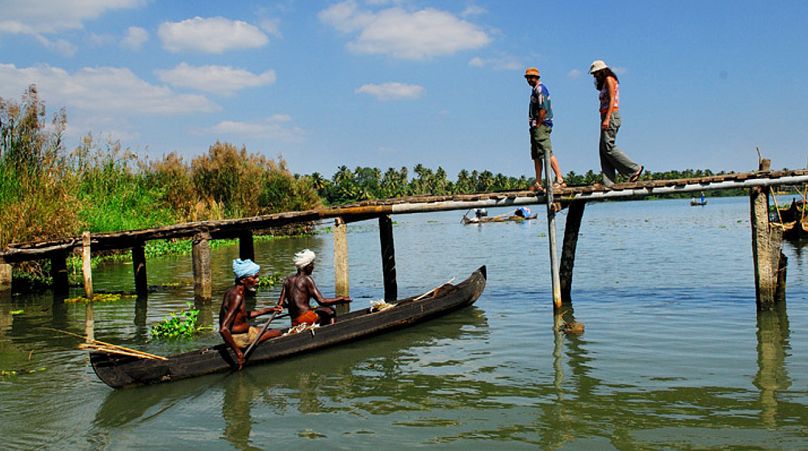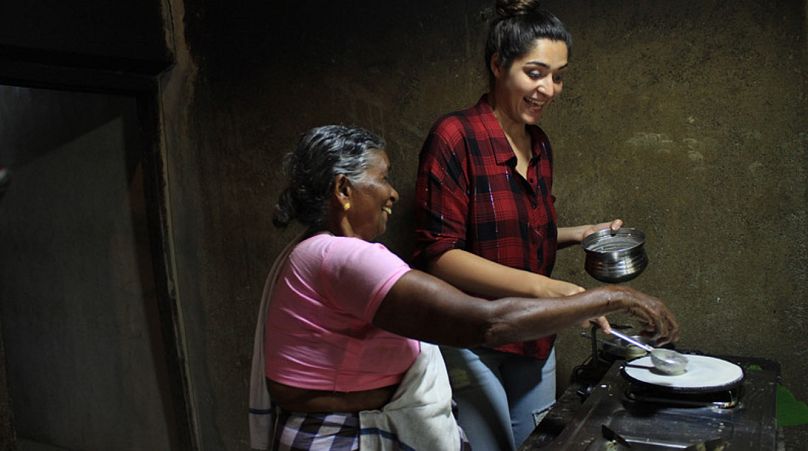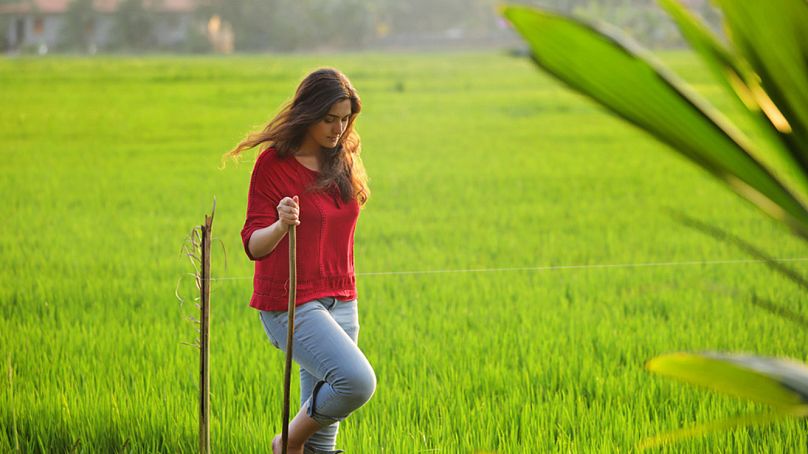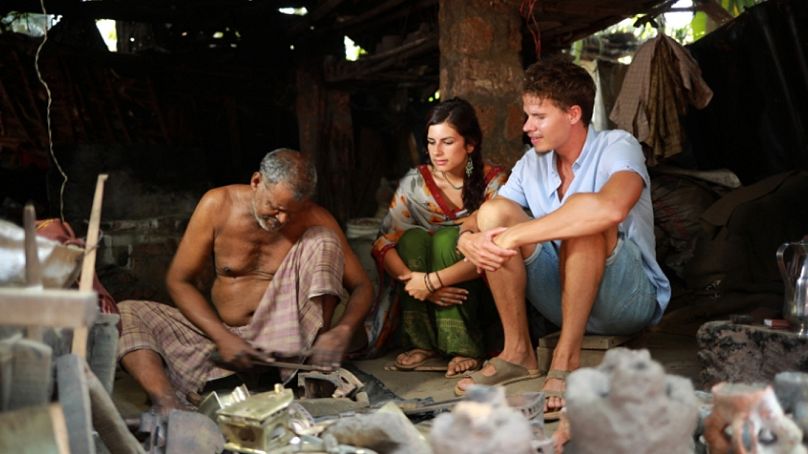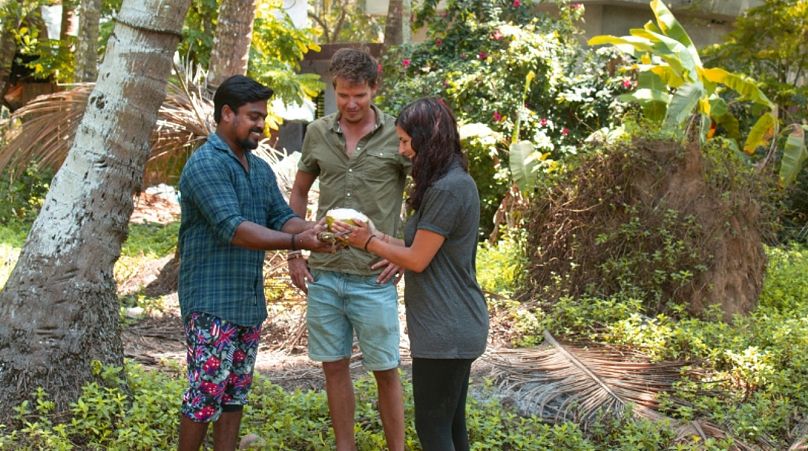You stroll down a path that winds through rice fields. A carpet of green extends before you, a palm grove – hazy in the distance. Egrets peck at worms among the rice sheaves. The gentle warmth of the rising sun embraces your shoulders and back. After an invigorating walk, you head back to the terracotta-roofed house by the lake. Here, an aroma wafts from the kitchen, hypnotically drawing you inside. Soon, you dig into a sumptuous Kerala breakfast of steaming fluffy appams, made from ground rice, and a stew of locally grown farm produce. The backwaters gently flow past as you sit in the patio with your friendly host family. This is a place that, at least for a few days, you can truly call home.
Kerala is a narrow sliver of land at the southern tip of India that's blessed with a diverse landscape and mesmerising culture. You experience sweeping mountain vistas, expansive tea estates set up during colonial rule, tranquil backwaters and pristine beaches. While the natural beauty of the land will soothe the senses, Kerala’s ancient art forms like Kathkali and Theyam will enthral you.
But unlike many other travel destinations, Kerala has managed to develop its tourism while still maintaining the beauty of the land, the wellbeing of its people, and their culture.
“We launched the Responsible Tourism programme in 2007 to bring together local communities and the tourism industry to create sustainable paths with financial, social, and ecological benefits,” said Ms Rani George, the Secretary of Kerala Tourism.
Kumarakom is a sleepy little village on the Vembanad Lake, the largest lake in Kerala. At one end is the Kumarakom Bird Sanctuary, home to many species including cuckoos and Siberian storks. Agriculture and fishing were the primary sources of income for people of this village.
In 2007, Kumarakom got the distinction of being the first location in India to implement Responsible Tourism practices. The community identified new possibilities for tourism. Homeowners, artisans, and locals engaged in traditional occupations came together and opened their doors to tourists.
“The most important benefit from the government’s initiative in Kumarakom is that we do not have to promote the location,” says Mr Unni Karthikeyan who runs the charming Nallathanka Nest. “Thanks to the RT Mission’s efforts, this little-known backwater village has seen a steady growth of tourists.”
Mr Karthikeyan, a postgraduate in travel and tourism management, opened his family home for tourists in 2009, like many local homeowners in the lakeside village.
Guests at these homestays experience local life with a family and taste local food, sourced from farmers in the area. Mr Karthikeyan’s father fishes in the canal that flows past their property and guests at Nallathanka accompany the elder Mr Karthikeyan to experience backwater fishing.
Through the RT Mission, locals offer “experience tours” like Village Experience, A Day with Farmers, and A Day with Artisans.
Walking through the paddy fields, you observe farmers cultivating, sowing or harvesting. You accompany a fisherman in his wooden canoe down tranquil canals and cast your net for shrimp and freshwater fish. Later, his family will gladly cook the catch for you in a traditional Kerala style cuisine. Then head down the village pathways, and you will arrive in a compound where women weave baskets from bamboo or carpets from dry palm fonds. If you have the time, they will happily teach you the craft.
In Kumarakom, there were almost no purchases of local produce from tourism, according to RT Mission. Thanks to Responsible Tourism initiatives that bring artisans and farming communities together, the economic benefits are now clearly visible.
Across Kerala, 17,000 registered RT units have 100,000 people working within the Responsible Tourism ambit. Together, their revenue was two million euros last year. Kumarakom alone generated over half a million euros from the sale of local products.
After your village experience walks, you’re sure to develop a healthy appetite. That’s when you head to the Samridhi Ethnic Food Restaurant. Your lunch is carefully set out before you on a banana leaf like a work of art – a mound of local rice, red curry from fish caught by local fishermen, and cooked vegetables sourced from the local farmer co-operative.
Set up in April 2011, Samridhi is perhaps the best example of a symbiotic relationship between tourism and locals. The RT Mission trained ten local women in entrepreneurship and cooking practices and provided them with loans to begin operations.
“This project has changed our lives and how we look at ourselves,” says Puthuparambil Raji of Samridhi. “We were housewives who cooked for our families, rarely venturing outside the house. But today, we meet people from all over the world who enjoy the food we prepare.”
Samridhi empowers the women financially too. The restaurant is open through the day and serves breakfast, snacks, lunch and dinner. So delightful is the food on the senses, the women are always busy. They have now expanded and cater for events in the area.
The initiatives of Kerala Tourism won international recognition including the UNWTO Ulysses Award in 2013, multiple Pacific Asia Travel Association (PATA) awards and national awards. In September 2019, Kerala Tourism won three PATA Gold awards, one of which was for the Samridhi restaurant project in Kumarakom.
But the government is by no means resting on its laurels.
Kerala Tourism today plans to move towards greater environmental responsibility with Green certification of destinations and calculations for carbon credits. RT Mission claims Kumarakom will be declared plastic-free by December 31st, 2019 and other destinations will follow in 2020.
“If people do not wake up to responsible tourism, there’s really no hope for a sustainable world,” said Mr Rupesh Kumar, State Responsible Tourism Mission Coordinator. “We must act now.”


